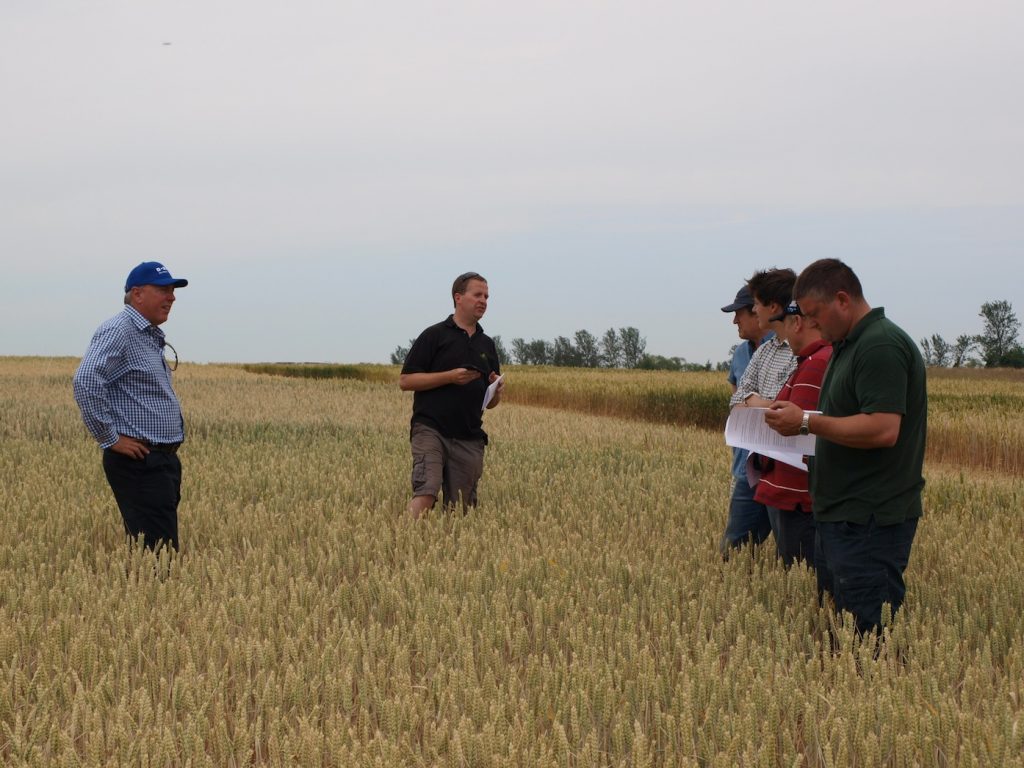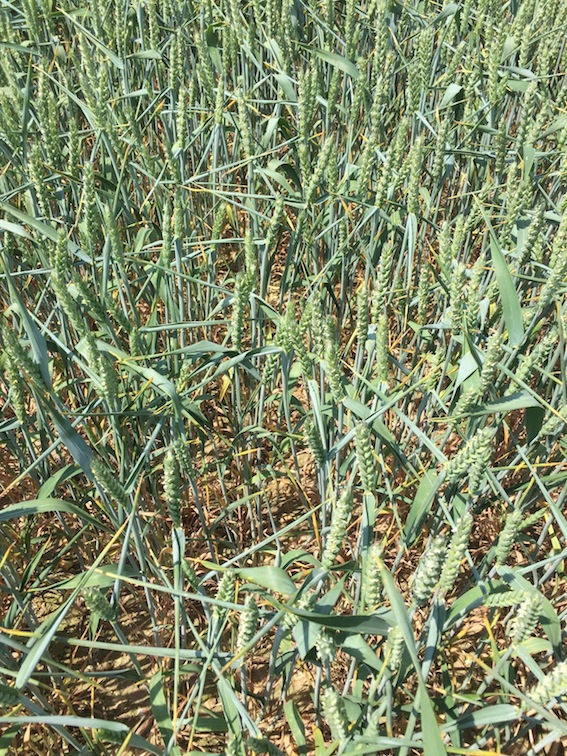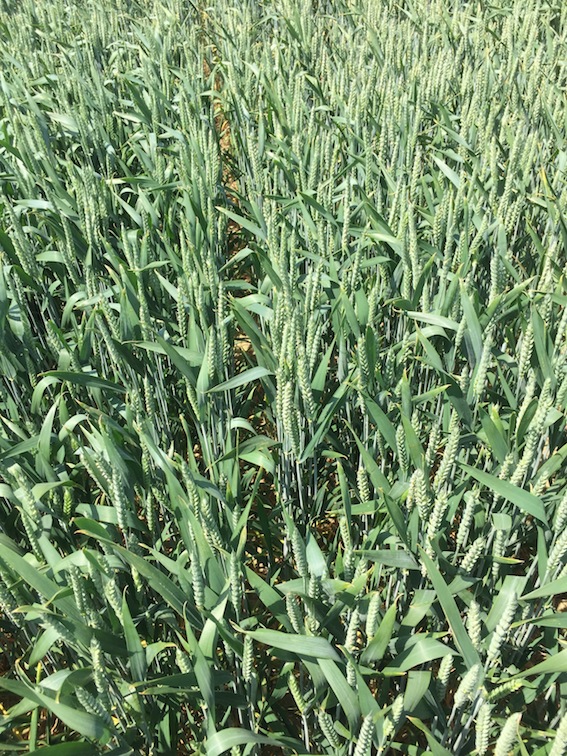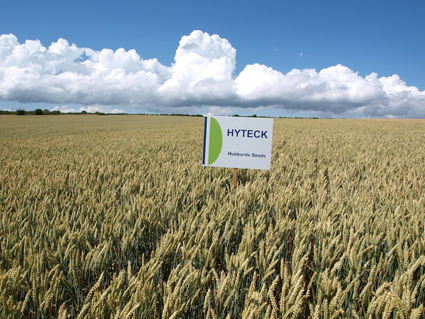
Farmers across the county have been visiting Hybrid Wheat farm trial open days to learn more about the economic case for growing Hybrid Wheat on land that normally limits high yields.
Stanway Hall near Colchester is farmed by Robert Davidson & Son Ltd and has been managed by James Faulkner for the past 10 years. The farm extends to over 850 ha with a further 600 ha farmed under contract farming agreements. Rotations include milling wheat, OSR, peas, potatoes, maize, sugar beet and grass.
Soil types include heavy to medium clay as well as some very light land. Annual average rainfall is just 540 mm and the light land selected for the trial usually yields little more than 5 – 7 t/ha.
Last year James decided to try Hybrid Wheat to see whether the hybrid vigour and larger root system provided significant benefits on the lightest land. In the event, better than usual rainfall meant conditions were not typical but he was pleased with the result.
This year he has drilled trial plots of Hystar, Hyteck and Hybery plus varieties new the UK, Hylux and Hyguardo. The latter offers medium maturity and very high yield potential. It is also the first HW to display resistance to OWBM. A plot of Santiago in the same field provides a control.
By 11 June the conventional wheat was clearly under stress and James took the following photographs – the Hybrid Wheat is on the right:


By the time of the open day the differences were even more marked and James anticipates a substantial yield premium from the Hybrid plots.
Exeter to the Yorkshire Wolds
R & P Farming Ltd is a family farming business of approximately 3000 acres around Exeter, including 2000 acres of arable. The rotation is based on winter wheat, OSR and oats but with much sand or sandy loam land yield potential is low and Hybrid Wheat is being trialled to see whether it can lift farm averages.
In West Suffolk Geo Gittus & Sons has a mix of cropping and enterprises. Group 4 feed wheat is grown with drilling up to early November after sugar beet, leaving land for spring cropping of barley or maize.
Hybrid Wheat is being tried for the first time to see whether there is an advantage in the later drilling slot and perhaps drilling into December if conditions allow. Hybrid Wheat was drilled on 10 December following sugar beat, using a plough and combi-drill on medium to light land. JB Diego was drilled to provide a control.
The Stody Estate in Norfolk is largely a light land farm with very diverse cropping and extensive irrigation. Hybrid Wheat has been grown successfully on the farm in recent years and the trial field had sugar beet in 2014 and winter wheat in 2013.

Pridmore and Son is a family farming business of approximately 1500 acres near Oakham. The limestone brash is prone to dry out early, suppressing yield and five varieties of Hybrid Wheat including Hyteck (above) are being grown alongside Evolution in a field previously used to grow OSR.
Garton Field near Driffield is farmed by Simon Ullyott and comprises soft chalk brash at an altitude of 110m; very free draining and prone to drought. Simon finds the early harvest achieved with Hybrid Wheat is ideal for his rotation, enabling early establishment of OSR which is essential on this farm. The trial area of Hybrid Wheat is following spring beans.
